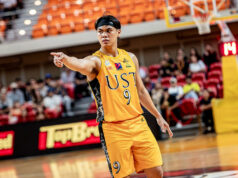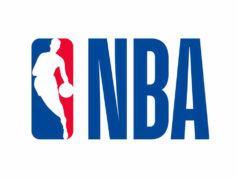The Lakers haven’t had a good year. In fact, they’ve arguably gone through one of the worst seasons in their storied history — a development made even more shocking in light of the promise it had at the beginning. To be sure, much of their travails can be traced to sheer bad luck; their campaign for their first playoff stint in six years was beset by a rash of injuries to key players, prized recruit LeBron James included. On the other hand, even more is attributable to self-inflicted wounds that showcase their capacity to be their own worst enemies.
Perhaps the writing was on the wall from the outset. Having nabbed James on the very first day of free agency, the Lakers had ample time to construct a roster that banked on the transcendent star’s strengths. Instead of surrounding him with shooters in recognition of his otherworldly playmaking skills, however, they went about signing other ball-dominant players who just so happened to have excess baggage they didn’t need. Still, they persevered, and, at one point early on, benefited from a soft schedule and his transcendent talents to climb to as high as fourth in conference standings.
And then James showed his age for the first time in a 15-year pro career, getting hurt and sidelined just as things were looking up. His inability to take to the court told on the Lakers, who promptly went on a swoon that even his subsequent return could not arrest. No doubt, it stemmed from the mixed signals he sent while he was out, with his trust (or lack thereof) on those around him manifesting in his pronounced pining for fellow All-Star Anthony Davis heading into the trade deadline. Their subsequent failure to nab the fellow Rich Paul client played out spectacularly in public and dampened team morale in private.
James could have healed wounds by words and action in the aftermath, but he wound up wanting on both. Lakers president of hoops operations Magic Johnson then piled on by contending that those whose names became part of trade rumors as the Davis drama was playing out needed to be professionals and accept reality with understanding. And when it became apparent that a postseason berth would remain elusive, they went on tanking mode in an effort to secure better positioning in the rookie draft.
To be fair, the move paid off, with the Lakers bucking the odds and jumping to fourth in the selection sequence. Before then, though, they had to endure the ignominy of Johnson’s abrupt resignation from his position on the very last day of their ill-fated 2018-19 run. He sprung his shocker just before they were to trek to the court for the last time, ensuring that the cloud of uncertainty already enveloping them would extend to the offseason. Meanwhile, they parted ways with Luke Walton and began a protracted search for a new head coach. Absent a new honcho, they resolved to decide by committee and ended up with Frank Vogel, their third choice, after not even presenting Monty Williams with an offer and then lowballing Tyronn Lue.
Still and all, the Lakers strove to stay even-keeled and hopeful that the worst would be behind them. Forget that they opted not to get a new president of hoops operations, as much an indication of their indecisiveness as a reflection of their flawed understanding of the complexities of running a franchise. Unfortunately, Johnson saw fit to give them the finger one more time, appearing on ESPN’s First Take right before Vogel’s formal introduction as their bench tactician and using the opportunity to go scorched earth on them in the name of truth.
In the live program co-hosted by the always-controversial Stephen A. Smith, Johnson professed an undying love for the Lakers, only to proceed to eviscerate them. He enjoined Tim Harris (president of business operations), Joey Buss (head of the G-League Lakers), and Jesse Buss (scouting director) to “stay in that lane. Because what’s happening is there are too many opinions, too many voices and everybody thinks their way is the right way. That’s why you can’t make good decisions because you got six, eight voices and everybody thinks their strategy is the right one. You can’t have that.”
As all and sundry know, Johnson saved his best — or, depending on perspective, worst — for “backstabbing” general manager Rob Pelinka, who, he argued, gunned for his job and did so by disparaging his performance to others in the franchise. That he effectively did the very same thing on First Take in standing for what he deems the unvarnished truth was, of course, lost on him. In any case, the Lakers lost anew. Vogel’s introduction as their new bench tactician was overrun by queries on their evident dysfunction.
And speaking of dysfunction, it was, perhaps, only natural for the Lakers to insist on Vogel’s acceptance of Jason Kidd as assistant coach. Yes, he’s the same soon-to-be Hall of Famer who not too long ago eased out Lawrence Frank from the Nets and then finagled a job from the Bucks — in other words, the exact type of behind-the-scenes maneuvering Johnson accused Pelinka of having done. Looking ahead, observers don’t need a vivid imagination to foresee the jockeying in the sidelines once the Lakers perform below expectations on the court.
True, the Lakers will survive the mess they’re also responsible for prolonging. Their name is nearly as strong as, say, that of the Knicks, who know a thing or two about missteps and less than that about learning from the past. That said, they’re wasting grand opportunities, and how. They may have cap space to lure a star to pair with James and ample assets to swap for another, but their brain trust doesn’t seem prepared to use them well. Their lines of reporting are informal and confusing at best, and not conducive to proper and timely analysis of available options. Little wonder, then, that fans are left crossing their fingers and hoping against hope that the stars will still align, and that all that glitters is truly purple and gold.
Anthony L. Cuaycong has been writing Courtside since BusinessWorld introduced a Sports section in 1994.



